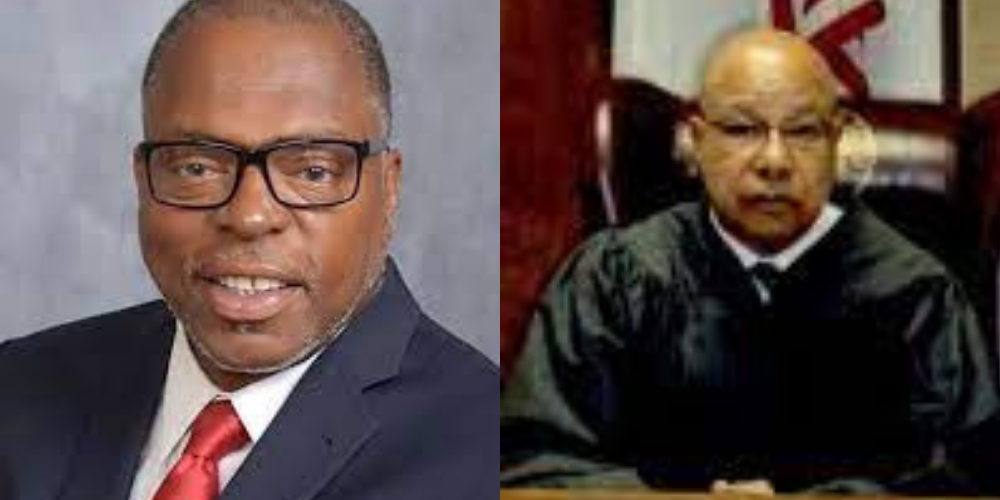Maybe COVID-19 is to blame for the lack of interest in local government or possibly it’s just an anomaly, but the way Smith County candidates fund their campaigns appears to be changing.
Reports filed before the March primary show candidates for countywide offices generally relied upon a fewer number, but larger amounts, of donations to finance their campaigns.

“It could be fewer people are paying attention to local government, but maybe those who do care a lot,” Dr. Mark Owens, an associate professor of political science at The University of Texas at Tyler said.
Historically, Smith County candidates tend to report a larger number of monetary donations of smaller amounts, with donations above $500 or even $1,000 being quite rare, according to a review of returns from the 1990s.
But the worldwide pandemic curbed traditional methods that relied upon door-to-door campaigning, fundraising events, in-person debates and club speeches. Instead, candidates turned to family members, close friends and their network of professionals for support.
This year, donations of $1,000, $3,000 even $5,000 appear more often.
“It appears — across the country — candidates are getting their own base of support and can do that by investing or spending more time with certain people in order to get fewer donations for that larger amount,” Owens said.
Although candidates’ financial reports are open to the public, Owens said it is unclear whether voters use the information to determine how they will vote.
“It works to allow candidates to monitor each other,” he said.
Following is a summary of donations filed in five Smith County political campaigns before the March 1 primaries.
Smith County commissioner races

Precinct 1
Pam Frederick of Bullard garnered 53% of the vote during the March 1 primary to claim the Republican nomination. Opponent Frederick “Fritz” Hager received 47%. There are no Democratic contenders, leaving Frederick the apparent successor to Commissioner Neal Franklin, who ran for county judge.
Finance reports filed before the primary show Frederick and Hager received more than half of their political contributions from donors who pledged at least $1,000.
A breakdown of total contributions shows:
· Frederick reported $32,950 in contributions with about 59% coming from nine separate donations.
· Hager reported $60,531 contributions with 62% coming from 22 separate donations.

Precinct 2
The race to succeed Commissioner Carrie Nix, who did not seek re-election, involved three contenders seeking the Republican nomination in the March 1 primary. There are no Democratic contenders.
John Moore earned the nomination with 53% of the vote with opponents Mike Adams receiving 35% and Anwar Khalifa, 12%.
Finance reports filed before the primary show candidates Khalifa and Moore received less than 25% of their political contributions from donors who pledged at least $1,000.
A breakdown of total contributions shows:
· Khalifa reported $13,464 in contributions of which 24% came from three separate contributors.
· Moore reported $14,040 in contributions of which about 21% came from three contributors.
· Adams reported $11,350 in contributions of which about 63% came from five contributors, three of which were the candidate himself.
Smith County Justice of the Peace races

Precinct 1
Challenger Derrick Choice received 58% of the vote for the Democratic nomination to defeat incumbent Quincy Beavers, who has served at the post for 28 years. There are no Republican candidates.
Finance reports filed before March 1 show Beavers received $14,817 in contributions of which $4,392 or 30% came living outside the county and 70% from out of state.
Choice reported $8,739 in contributions, all of which came from Smith County donors.
Precinct 4

Candidate Curtis Wulf garnered 52% of the vote for the Republican nomination to succeed Mitch Shamburger, who is retiring from the post after serving nearly 40 years.
Challengers Laney Pilcher Barnes received 23% and Ronnie Hester received 25%.
Wulf faces a Democratic contender Randy Hawkins in the general election. Precinct 4 included Winona and Red Springs.
Financial reports filed before the primary election show:
Republicans
· Pilcher-Barnes reported $3,000 in contributions.
· Hester reported $2,697 in contributions.
· Wulf reported $1,150 in contributions.
Democrat
· Randy Hawkins – no report filed.
Smith County Court at Law Judge #3

Clay White garnered 52% of the vote to win the Republican nomination to succeed Judge Floyd Getz who did not seek re-election. Challengers Trevor Rose received 9% and Sara Maynard, 38%. There are no Democratic contenders.
Financial reports filed before March 1 show:
· White reported $87,075 in donations with 52% coming from 44 people who donated at least $1,000.
· Maynard reported $19,973 in contributions with 49% coming from people who donated at least $1,000.
· Trevor Rose reported $4,306 in contributions.
Smith County Treasurer

Incumbent Kelli White earned 75% of the vote over challenger Jamie Boersma to win the Republican nomination. No Democrat has filed for the office.
According to financial reports filed before March 1, Boersma has reported $10,372 in contributions and White has reported $877.
Love what you're seeing in our posts? Help power our local, nonprofit journalism platform — from in-depth reads, to freelance training, to COVID Stories videos, to intimate portraits of East Texans through storytelling.
Our readers have told us they want to better understand this place we all call home, from Tyler's north-south divide to our city's changing demographics. What systemic issues need attention? What are are greatest concerns and hopes? What matters most to Tylerites and East Texans?
Help us create more informed, more connected, more engaged Tyler. Help us continue providing no paywall, free access posts. Become a member today. Your $15/month contribution drives our work.







